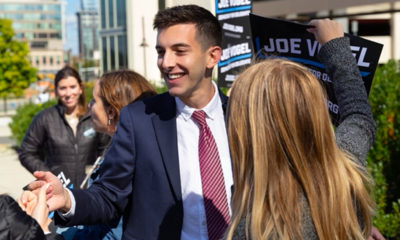Books
FALL ARTS PREVIEW 2017: Books
Maupin’s memoirs, drag photos, ‘Davie Bowie Made Me Gay’ among fall book highlights
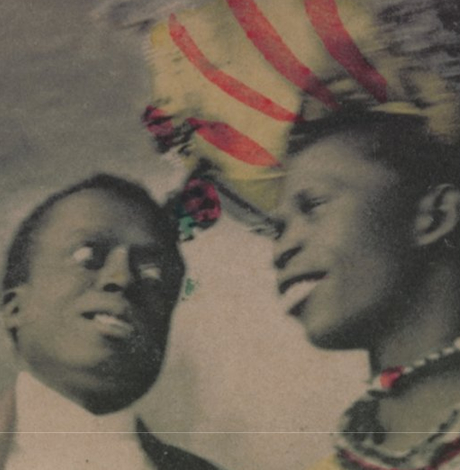
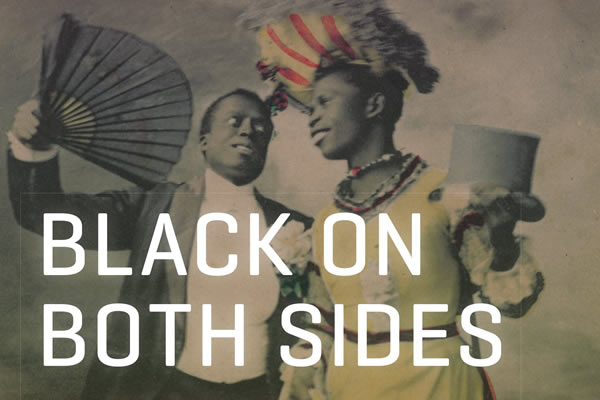
‘Black on Both Sides: a Racial History of Trans Identity’ is slated for a December release. It explores the lives of black trans women throughout U.S. history. (Photo courtesy University of Minnesota Press)
EVENTS
The 22nd annual Baltimore Book Festival returns to the Inner Harbor Promenade Sept. 22-24. The festival, which is free and open to the public from 11 a.m.-7 p.m. each day, will feature about 500 presenting authors and 3,000 books for purchase at the Ivy Book Shop. Some of the literary stars who will be presenting include Nigerian author Chimamanda Ngozi Adichie, children’s book writer Adam Gidwitz, and queer poet, writer, and performer Eileen Myles. For more details, including the full schedule of events, visit baltimorebookfestival.org.
Hot off the release of his highly anticipated memoir, “Logical Family” (Harper, Oct. 3), Armistead Maupin will speak at the National Museum of the American Indian (4th St and Independence Ave., N.W.) at 6:45 p.m. on Wednesday, Oct. 4. “Armistead Maupin: Tales of a Lifetime,” will include a reading, discussion and book signing. “Logical Family” traces Maupin’s journey from his childhood in conservative North Carolina to Vietnam and eventually 1970s gay San Francisco, recounting the relationships he cherished along the way and how they have shaped him into one of America’s most celebrated writers. For more information and to purchase tickets, visit smithsonianassociates.org.
RELEASES
Hillary Clinton’s seventh book (her third memoir) “What Happened” (Simon & Schuster, Sept. 12) recounts her failed quest for the White House last year. Clinton has been more candid of late, a change of tone some — political ideology aside — are finding refreshing. Be prepared to shell out big bucks if you want to catch her on her book tour. Her Sept. 18 appearance at Warner Theatre in Washington is nearly sold out (and may be by the time this is published). As of Monday, tickets were still available ranging from $195-345. Visit livenation.com for details.
If you’re a poetry fan, “Madness” by Sam Sax (Penguin Books, Sept. 12) is a stunning debut collection that interrogates our understanding of heterosexuality, sanity, masculinity and addiction. Sax, a queer Jewish writer and educator, draws on his personal and family mental health history to confront these difficult themes with fearlessness and candor.
In his latest conceptual series, “Beautiful Berlin Boys” (Kehrer Verlag, Sept. 12), Iranian American photographer, Ashkan Sahihi, pays homage to the gay creative community ravaged by the AIDS epidemic in 1980s New York City through nude photographs of gay artists in modern-day Berlin. In compiling the spare, intimate portraits, Sahihi discovered a haunting familiarity in his subjects, who recall the gay avant garde of his past while representing the newest generation of gay men in what he considers today’s creative capital.
“True Sex: the Lives of Trans Men at the Turn of the Twentieth Century” by Emily Skidmore (NYU Press, Sept. 19) tells the overlooked stories of 18 trans men who assimilated into small town communities during the late 1800s. Skidmore pieces together reports from local newspapers, medical journals and other sources to offer queer narratives that were not cosmopolitan or subversive, but rather quite ordinary, challenging our preconceived notions of community, rural identity and who we think of as trans or queer.
Amidst political uncertainty surrounding LGBT rights, “Nasty Women: Feminism, Resistance, and Revolution in Trump’s America” by Samhita Mukhopadhyay and Kate Harding (Picador, Oct. 3) is an inspiring collection of essays from leading feminist writers who describe how we got here and how we can resist. Featured essays include Samantha Irby on living as a queer black woman in rural America, Randa Jarrar on cross country travel as a queer Muslim woman and Meredith Taulson on feminism and the transgender community, among many others.
“The Book of Love and Hate,” a new novel from Lambda Literary Award winner Lauren Sanders (Akashic Books, Oct. 3) tells of of protagonist Jennifer Baron encounters with queer Palestinians in Israel while searching for her missing father.
Also out that day is “TELL: Love, Defiance and the Military Trial at the Tipping Point for Gay Rights” by Maj. Margaret Witt with Tim Connor (ForeEdge, Oct. 3), a personal account of Witt’s decorated military career and the path to the repeal of the “Don’t Ask, Don’t Tell” policy for LGBT servicemembers.
Any true Sasha Velour fan already has “Drags” (Kmw Studio, Oct. 16) set to preorder. Shot by photographer Gregory Kramer, the collection features hyper-glam black and white, full-length studio portraits of New York City’s drag kings and queens. “Drags” also includes essays by some of the photo subjects themselves: Charles Busch, Linda Simpson, Goldie Simpson, and of course, the ever-scholarly Sasha.
With recipes written as deliciously as they taste, “The Juhu Beach Club Cookbook: Indian Spice, Oakland Soul” by Preeti Mistry and Sarah Henry (Running Press, Oct. 31) has already sent the foodie world into a frenzy well beyond the Bay Area. Mistry, a gay Indian American chef beloved for her big personality, provides a contemporary spin on the traditional Indian cooking she grew up with in this eclectic collection of street food, comfort classics and haute cuisine.
Andrea Lawlor’s debut novel, “Paul Takes the Form of a Mortal Girl” (Rescue Press, Nov. 1), offers a witty and raucous portrait of LGBT radicalism during the early ‘90s. The story follows Paul Polydoris, who studies queer theory and writes provocative zines when not tending bar at the local gay club. Lawlor portrays an exhilarating picaresque hero whose identity seesaws from Riot Grrl to leather cub as he parties through era staples, such as the Michigan Womyn’s Festival.
As a blend of memoir, true crime and ghost story, “Mean” by Myriam Gurba (Coffee House Press, Nov. 14) is difficult to categorize, but hilarious and poignant at every twist and turn. Gurba, a spoken-word performer and visual artist, tells her own coming of age story as a queer, mixed-race Chicana in California. “Mean” tackles themes of sexual violence, racism and homophobia with brassiness and heart as multilayered as Gurba’s approach to genre.
“Every Night is Saturday Night: A Country Girl’s Journey to the Rock & Roll Hall of Fame” (BMG, Nov. 14), written alongside Scott B. Bomar, is the long-awaited autobiography of Wanda Jackson, the legendary “Queen of Rockabilly,” “First Lady of Rock & Roll” and treasured gay icon. Jackson shares personal stories on her relationship with Elvis Presley, her faith and the challenges she faced in bringing sex appeal to country music and femininity to Rock & Roll. The book also features a foreword by Elvis Costello.
In need of some playlist inspiration? “David Bowie Made Me Gay” by Darryl W. Bullock (The Overlook Press, Nov. 21) is a highly comprehensive history of LGBT music, spanning a century from early jazz and blues to today’s most recognizable pop stars out of the closet. Bullock meticulously chronicles the LGBT community’s vast influence on music through a historical lens, revealing how society’s oscillation between acceptance and persecution has shaped what we listen to today.
In “Black on Both Sides: A Racial History of Trans Identity” (University of Minnesota Press, Dec. 5), C. Riley Snorton uncovers the obscured or erased narratives of black trans women in the United States, beginning with the mid-19th century and continuing through present-day oppression and resistance. Snorton, a professor of Africana studies and feminist, gender and sexuality studies at Cornell University, builds on early sexological writings, fugitive slave stories, Afro-modernist literature and other materials to craft this essential account of black trans history.
Other releases of note include:
• “Murder Under the Fig Tree: A Palestine Mystery,” by Kate Jessica Raphael (She Writes Press), is a murder mystery novel that draws Rania Bakara, a Palestinian policewoman, deep into the underground Palestinian gay scene as she investigates the death of young man in a village adjacent to her own. The book is $16.95 and releases Sept. 19.
• “The Ultimate Guide to Gay Dads: Everything You Need to Know About LGBT Parenting But Are (Mostly) Afraid to Ask,” by Eric Rosswood (Mango), is a generous resource for gay and bisexual men who are thinking about starting a family together. The guide is $13.85 and releases Oct. 24.
• “Mostly Straight: Sexual Fluidity among Men” by Ritch C. Savin-Williams (Harvard University Press) is a biological, empirical and psychological research-based exploration of the personal stories of 40 young men who identify as sexually fluid or “mostly straight.” The book is $27.95 and releases Nov. 3.
• “Patient Zero and the Making of the AIDS Epidemic,” by Richard A. McKay (University of Chicago Press), investigates the introduction of the term “patient zero” into the popular lexicon during the 1980s AIDS epidemic. The book thoughtfully traces the life of Gaëtan Dugas, who was incorrectly identified (and vilified) as the first AIDS case in North America. It is $24.91 and releases Nov. 15.
Books
New book offers observations on race, beauty, love
‘How to Live Free in a Dangerous World’ is a journey of discovery
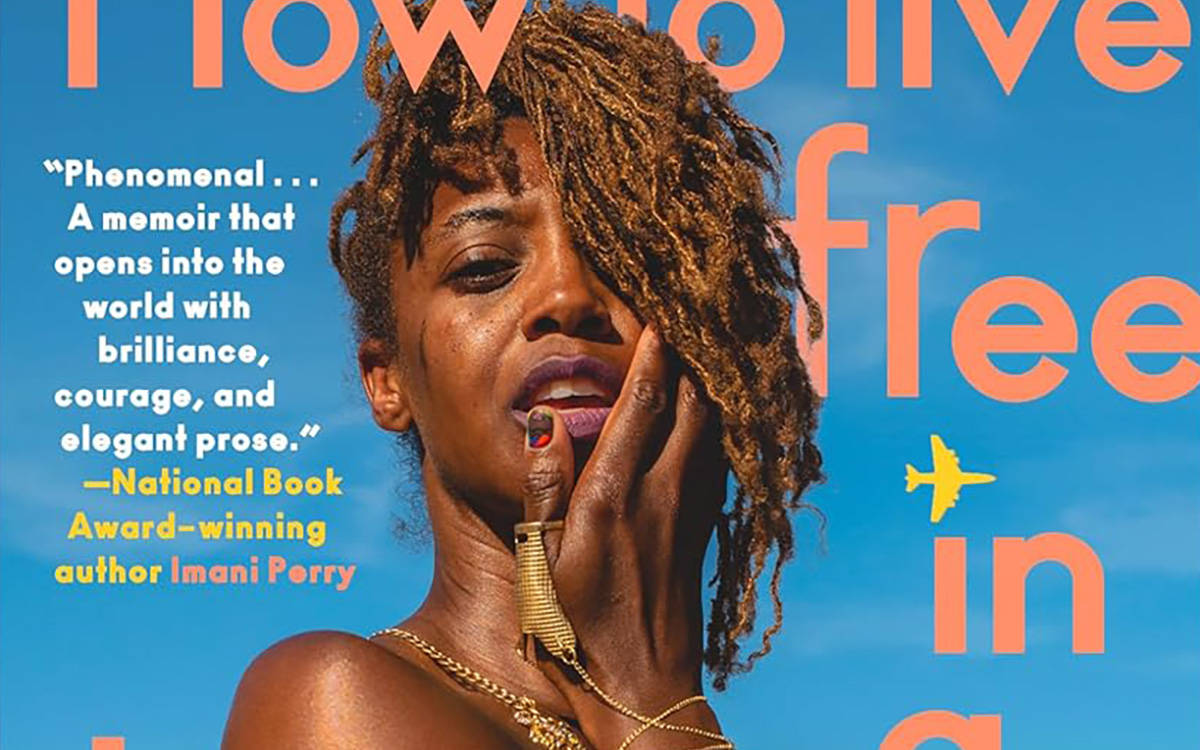
‘How to Live Free in a Dangerous World: A Decolonial Memoir’
By Shayla Lawson
c.2024, Tiny Reparations Books
$29/320 pages
Do you really need three pairs of shoes?
The answer is probably yes: you can’t dance in hikers, you can’t shop in stilettos, you can’t hike in clogs. So what else do you overpack on this long-awaited trip? Extra shorts, extra tees, you can’t have enough things to wear. And in the new book “How to Live Free in a Dangerous World” by Shayla Lawson, you’ll need to bring your curiosity.

Minneapolis has always been one of their favorite cities, perhaps because Shayla Lawson was at one of Prince’s first concerts. They weren’t born yet; they were there in their mother’s womb and it was the first of many concerts.
In all their travels, Lawson has noticed that “being a Black American” has its benefits. People in other countries seem to hold Black Americans in higher esteem than do people in America. Still, there’s racism – for instance, their husband’s family celebrates Christmas in blackface.
Yes, Lawson was married to a Dutch man they met in Harlem. “Not Haarlem,” Lawson is quick to point out, and after the wedding, they became a housewife, learned the language of their husband, and fell in love with his grandmother. Alas, he cheated on them and the marriage didn’t last. He gave them a dog, which loved them more than the man ever did.
They’ve been to Spain, and saw a tagline in which a dark-skinned Earth Mother was created. Said Lawson, “I find it ironic, to be ordained a deity when it’s been a … journey to be treated like a person.”
They’ve fallen in love with “middle-American drag: it’s the glitteriest because our mothers are the prettiest.” They changed their pronouns after a struggle “to define my identity,” pointing out that in many languages, pronouns are “genderless.” They looked upon Frida Kahlo in Mexico, and thought about their own disability. And they wish you a good trip, wherever you’re going.
“No matter where you are,” says Lawson, “may you always be certain who you are. And when you are, get everything you deserve.”
Crack open the front cover of “How to Live Free in a Dangerous World” and you might wonder what the heck you just got yourself into. The first chapter is artsy, painted with watercolors, and difficult to peg. Stick around, though. It gets better.
Past that opening, author Shayna Lawson takes readers on a not-so-little trip, both world-wide and with observant eyes – although it seems, at times, that the former is secondary to that which Lawson sees. Readers won’t mind that so much; the observations on race, beauty, love, the attitudes of others toward America, and finding one’s best life are really what takes the wheel in this memoir anyhow. Reading this book, therefore, is not so much a vacation as it is a journey of discovery and joy.
Just be willing to keep reading, that’s all you need to know to get the most out of this book. Stick around and “How to Live Free in a Dangerous World” is what to pack.
The Blade may receive commissions from qualifying purchases made via this post.
Books
Story of paralysis and survival features queer characters
‘Unswerving: A Novel’ opens your eyes and makes you think
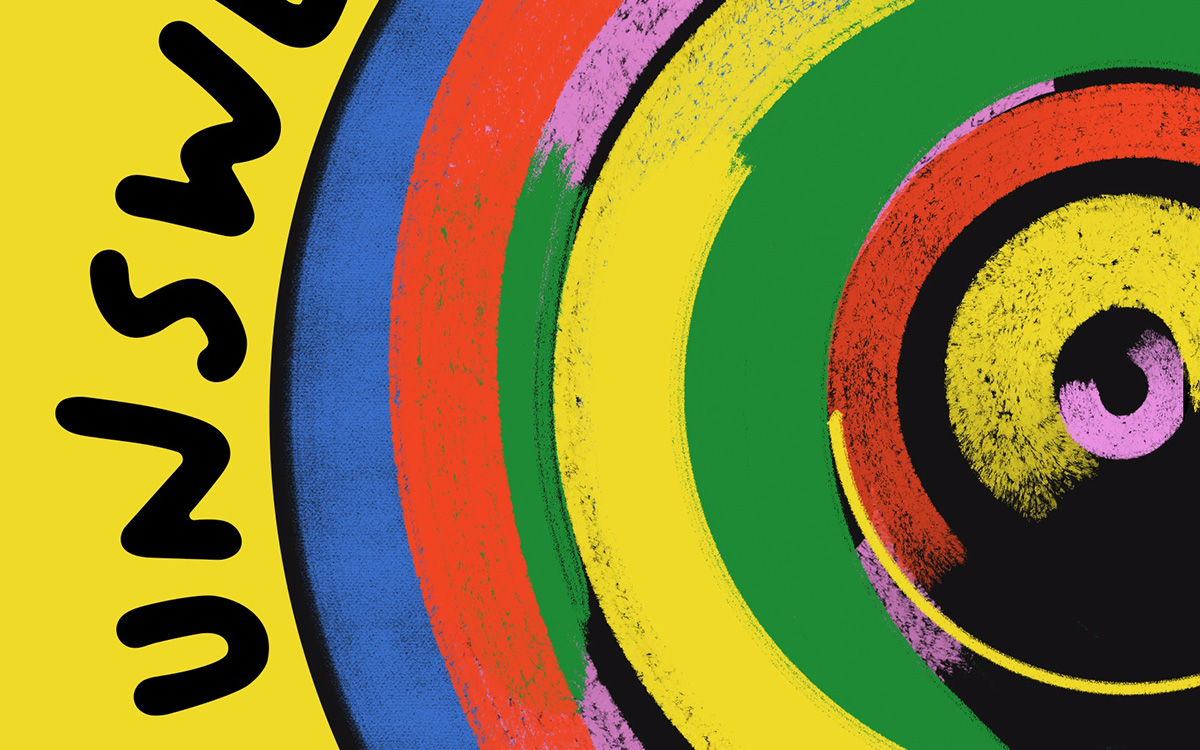
‘Unswerving: A Novel’
By Barbara Ridley
c.2024, University of Wisconsin Press
$19.95 / 227 pages
It happened in a heartbeat.
A split-second, a half a breath, that’s all it took. It was so quick, so sharp-edged that you can almost draw a line between before and after, between then and now. Will anything ever be the same again? Perhaps, but maybe not. As in the new book “Unswerving” by Barbara Ridley, things change, and so might you.

She could remember lines, hypnotizing yellow ones spaced on a road, and her partner, Les, asleep in the seat beside her. It was all so hazy. Everything Tave Greenwich could recall before she woke up in a hospital bed felt like a dream.
It was as though she’d lost a month of her life.
“Life,” if you even wanted to call it that, which she didn’t. Tave’s hands resembled claws bent at the wrist. Before the accident, she was a talented softball catcher but now she could barely get her arms to raise above her shoulders. She could hear her stomach gurgle, but she couldn’t feel it. Paralyzed from the chest down, Tave had to have help with even the most basic care.
She was told that she could learn some skills again, if she worked hard. She was told that she’d leave rehab some day soon. What nobody told her was how Les, Leslie, her partner, girlfriend, love, was doing after the accident.
Physical therapist Beth Farringdon was reminded time and again not to get over-involved with her patients, but she saw something in Tave that she couldn’t ignore. Beth was on the board of directors of a group that sponsored sporting events for disabled athletes; she knew people who could serve as role models for Tave, and she knew that all this could ease Tave’s adjustment into her new life. It was probably not entirely in her job description, but Beth couldn’t stop thinking of ways to help Tave who, at 23, was practically a baby.
She could, for instance, take Tave on outings or help find Les – even though it made Beth’s own girlfriend, Katy, jealous.
So, here’s a little something to know before you start reading “Unswerving”: author Barbara Ridley is a former nurse-practitioner who used to care for patients with spinal cord injuries. That should give readers a comfortable sense of satisfaction, knowing that her experiences give this novel an authenticity that feels right and rings true, no faking.
But that’s not the only appeal of this book: while there are a few minor things that might have readers shaking their heads (HIPAA, anyone?), Ridley’s characters are mostly lifelike and mostly likable. Even the nasties are well done and the mysterious character that’s there-not-there boosts the appeal. Put everyone together, twist a little bit to the left, give them some plotlines that can’t ruined by early guessing, and you’ve got a quick-read novel that you can enjoy and feel good about sharing.
And share you will because this is a book that may also open a few eyes and make readers think. Start “Unswerving” and you’ll (heart) it.
The Blade may receive commissions from qualifying purchases made via this post.
Books
Examining importance of queer places in history of arts and culture
‘Nothing Ever Just Disappears’ shines with grace and lyrical prose
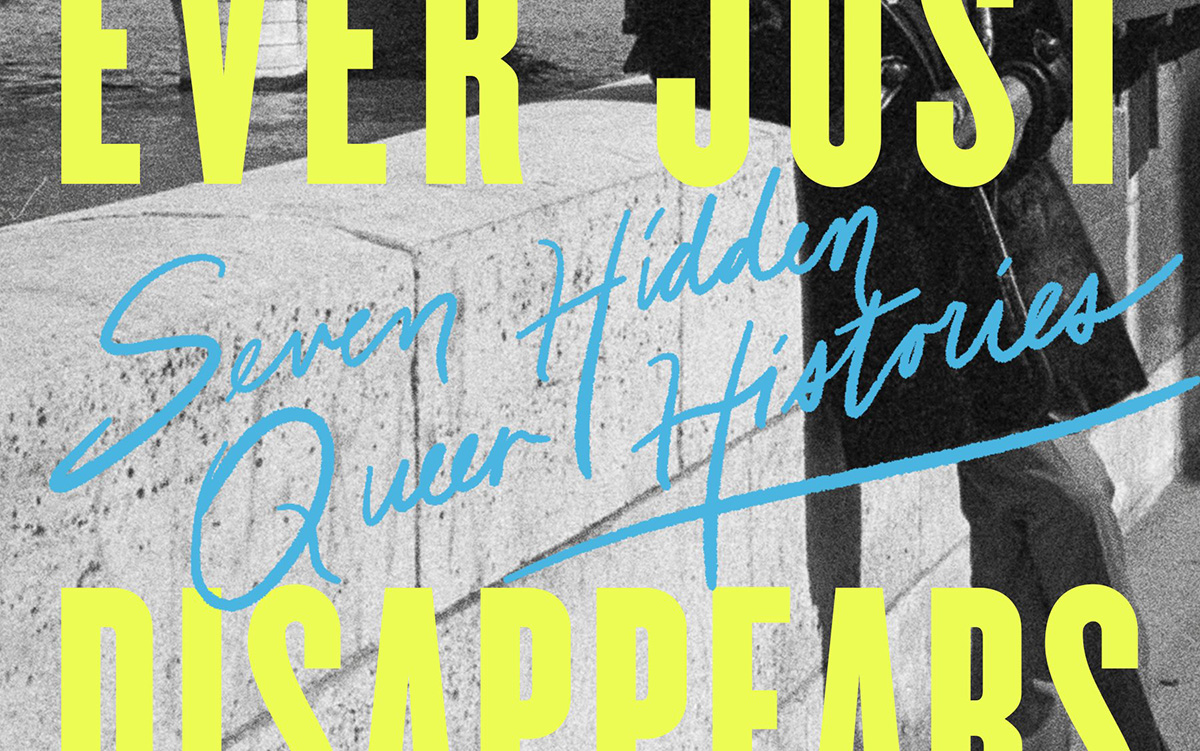
‘Nothing Ever Just Disappears: Seven Hidden Queer Histories’
By Diarmuid Hester
c.2024, Pegasus Books
$29.95/358 pages
Go to your spot.
Where that is comes to mind immediately: a palatial home with soaring windows, or a humble cabin in a glen, a ramshackle treehouse, a window seat, a coffeehouse table, or just a bed with a special blanket. It’s the place where your mind unspools and creativity surges, where you relax, process, and think. It’s the spot where, as in the new book “Nothing Ever Just Disappears” by Diarmuid Hester, you belong.

Clinging “to a spit of land on the south-east coast of England” is Prospect Cottage, where artist and filmmaker Derek Jarman lived until he died of AIDS in 1994. It’s a simple four-room place, but it was important to him. Not long ago, Hester visited Prospect Cottage to “examine the importance of queer places in the history of arts and culture.”
So many “queer spaces” are disappearing. Still, we can talk about those that aren’t.
In his classic book, “Maurice,” writer E.M. Forster imagined the lives of two men who loved one another but could never be together, and their romantic meeting near a second-floor window. The novel, when finished, “proved too radical even for Forster himself.” He didn’t “allow” its publication until after he was dead.
“Patriarchal power,” says Hester, largely controlled who was able to occupy certain spots in London at the turn of the last century. Still, “queer suffragettes” there managed to leave their mark: women like Vera Holme, chauffeur to suffragette leader Emmeline Pankhurst; writer Virginia Woolf; newspaperwoman Edith Craig, and others who “made enormous contributions to the cause.”
Josephine Baker grew up in poverty, learning to dance to keep warm, but she had Paris, the city that “made her into a star.” Artist and “transgender icon” Claude Cahun loved Jersey, the place where she worked to “show just how much gender is masquerade.” Writer James Baldwin felt most at home in a small town in France. B-filmmaker Jack Smith embraced New York – and vice versa. And on a personal journey, Hester mourns his friend, artist Kevin Killian, who lived and died in his beloved San Francisco.
Juxtaposing place and person, “Nothing Ever Just Disappears” features an interesting way of presenting the idea that both are intertwined deeper than it may seem at first glance. The point is made with grace and lyrical prose, in a storyteller’s manner that offers back story and history as author Diarmuid Hester bemoans the loss of “queer spaces.” This is really a lovely, meaningful book – though readers may argue the points made as they pass through the places included here. Landscapes change with history all the time; don’t modern “queer spaces” count?
That’s a fair question to ask, one that could bring these “hidden” histories full-circle: We often preserve important monuments from history. In memorializing the actions of the queer artists who’ve worked for the future, the places that inspired them are worth enshrining, too.
Reading this book may be the most relaxing, soothing thing you’ll do this month. Try “Nothing Ever Just Disappears” because it really hits the spot.
The Blade may receive commissions from qualifying purchases made via this post.
-

 State Department3 days ago
State Department3 days agoState Department releases annual human rights report
-

 South America1 day ago
South America1 day agoArgentina government dismisses transgender public sector employees
-

 Maryland5 days ago
Maryland5 days agoJoe Vogel campaign holds ‘Big Gay Canvass Kickoff’
-

 District of Columbia1 day ago
District of Columbia1 day agoCatching up with the asexuals and aromantics of D.C.





